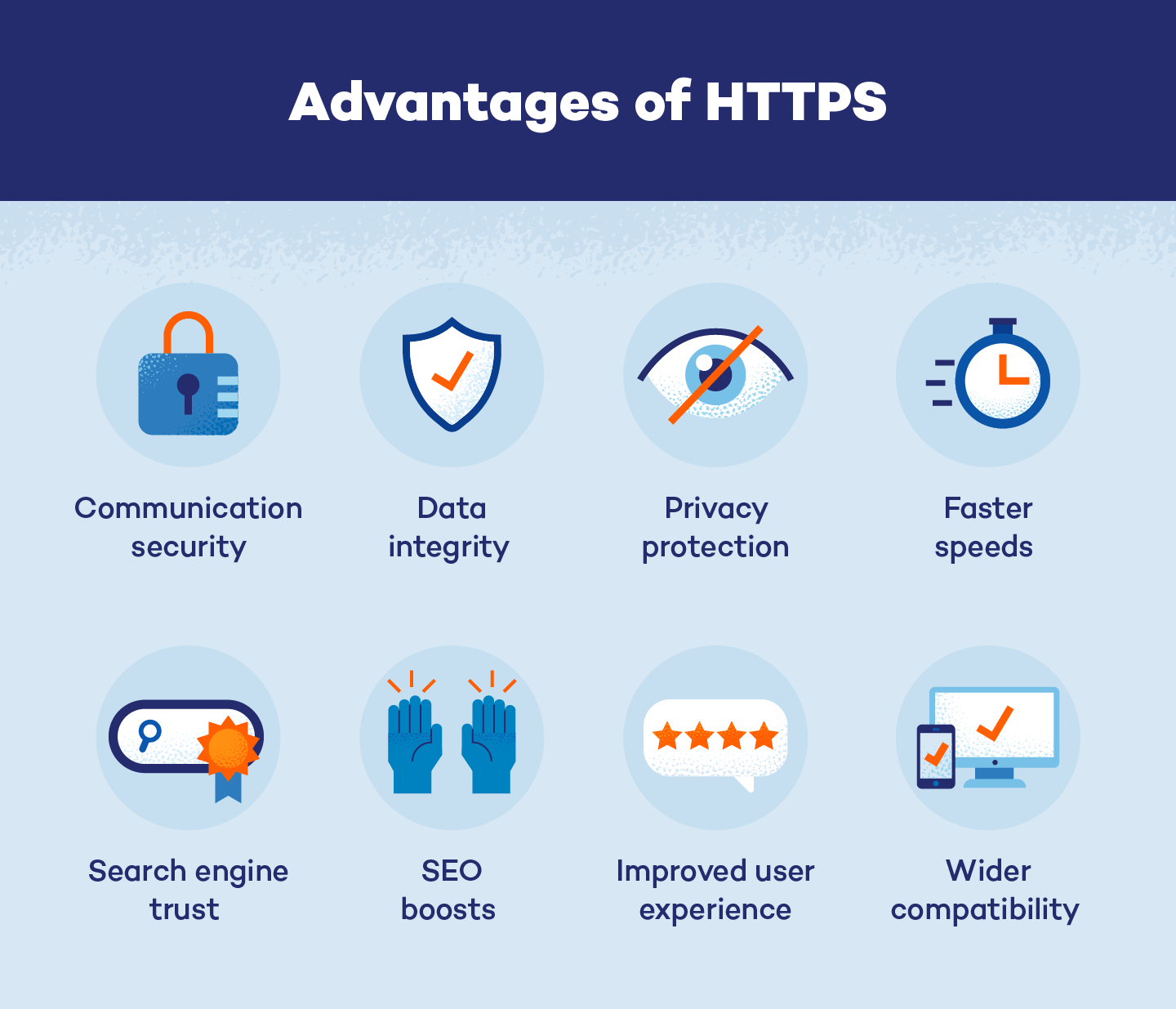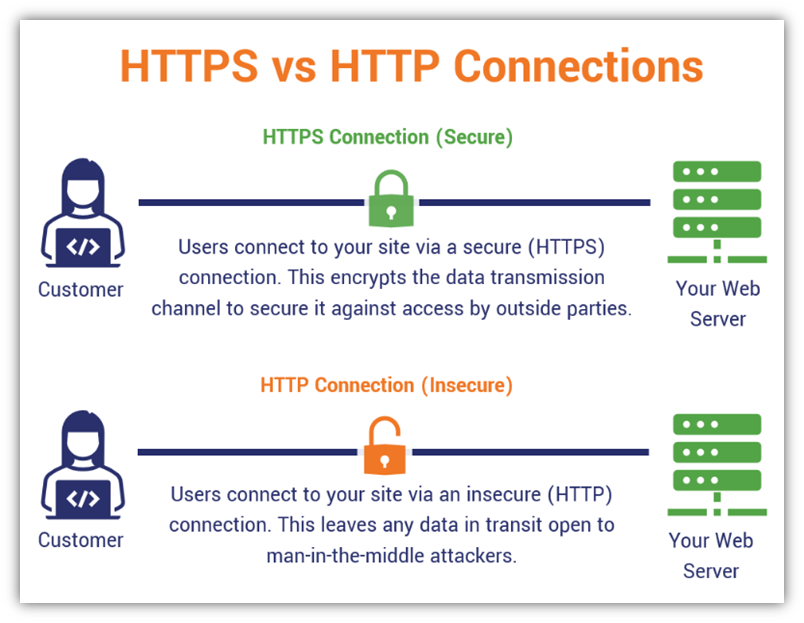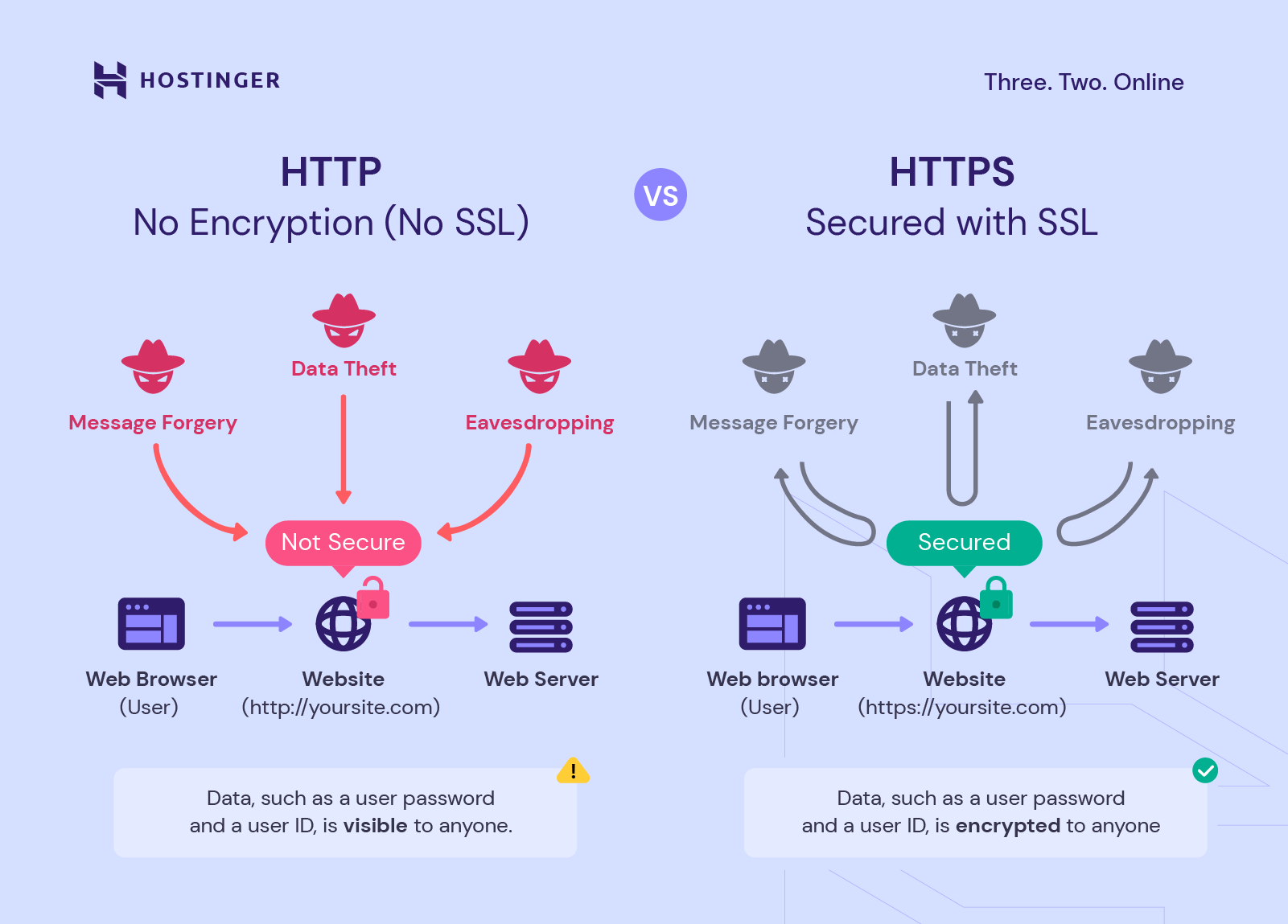Aniwave & HTTPS: A Secure Path To Your Anime Home
For countless enthusiasts worldwide, the world of anime offers an unparalleled escape into vibrant stories, complex characters, and breathtaking animation. Sites like Aniwave have become a digital haven for many seeking to dive into the latest episodes or revisit timeless classics. But as we increasingly rely on online platforms for entertainment, a crucial question arises: how secure is our journey into these digital realms? This article delves into the importance of secure connections, specifically HTTPS, when accessing your favorite anime on platforms like https://aniwave.to, ensuring your streaming experience is not only enjoyable but also safe.
In an age where digital security is paramount, understanding the protocols that safeguard our online interactions is no longer optional; it's essential. From managing personal accounts to simply browsing a website, the underlying technology works tirelessly to protect your data. We'll explore why that little lock icon in your browser's address bar matters, how it relates to your Aniwave experience, and what steps you can take to ensure a secure and uninterrupted flow of your beloved anime, right to your home.
Table of Contents
- Understanding Aniwave: Your Anime Hub
- The "HTTPS" in "https://aniwave.to": A Digital Lock and Key
- Navigating Aniwave Safely: Best Practices
- Beyond the Browser: System Security and Performance
- The Broader Landscape of Online Safety
- Community and Support: Where to Find Help
- Legal and Ethical Considerations of Streaming
- Future of Secure Streaming and Aniwave
Understanding Aniwave: Your Anime Hub
Aniwave, formerly known by other names, has established itself as a popular destination for anime fans seeking a vast library of titles, from the latest simulcasts to classic series. Its appeal lies in its extensive collection, often user-friendly interface, and the convenience of accessing content without subscriptions. For many, Aniwave represents the digital equivalent of a local video store, but with an almost endless supply of anime available at their fingertips. The platform caters to a global audience, often offering content in various languages, much like how "This site in other languages x čeština" indicates a commitment to broader accessibility. However, the very nature of such platforms, which often operate in a legal grey area regarding content licensing, brings with it a heightened need for user vigilance concerning online security. While the allure of free content is strong, understanding the underlying security mechanisms, especially the role of HTTPS, becomes crucial for anyone regularly visiting https://aniwave.to or similar sites. It's about balancing convenience with caution, ensuring that your pursuit of entertainment doesn't inadvertently compromise your digital well-being.The "HTTPS" in "https://aniwave.to": A Digital Lock and Key
Have you ever wondered why a lock icon appears on your browser URL bar when you visit certain websites, including platforms like Aniwave? And why is it important? We did too, and understanding this little symbol is fundamental to safe online browsing. The "HTTPS" in "https://aniwave.to" stands for Hypertext Transfer Protocol Secure, and it's far more than just an extra letter; it's a critical security layer that protects your online interactions.What is HTTPS and Why Does it Matter?
At its core, HTTPS is the most common protocol for sending data between a web browser and a website. Unlike its predecessor, HTTP, HTTPS uses encryption for secure communication over a computer network, and is widely adopted across the internet. When a user connects to a webpage that uses HTTPS, the webpage will send a security certificate to your browser. This certificate verifies the website's identity, ensuring that you are indeed connecting to the legitimate Aniwave server and not an imposter trying to intercept your data. The magic behind HTTPS largely relies on Transport Layer Security (TLS), the successor to SSL. It uses TLS to encrypt all communication between a client (your browser) and a server (Aniwave's website). This encryption scrambles the data, making it unreadable to anyone who might try to snoop on your connection. Imagine sending a letter in a sealed, tamper-proof envelope versus an open postcard. HTTPS is that sealed envelope for your digital information. Without it, any data you send or receive, from your viewing history to potential login credentials (if you were to create an account), would be vulnerable to interception by malicious actors.How HTTPS Protects Your Connection
The primary benefit of HTTPS is data integrity and confidentiality. When you access https://aniwave.to, HTTPS ensures that:- Data Encryption: All data exchanged between your browser and the Aniwave server is encrypted. This means if someone were to intercept your data packets, they would see only scrambled, unreadable information, not your actual activity or any personal details. This is vital for protecting your privacy and preventing eavesdropping.
- Data Integrity: HTTPS ensures that the data transferred between your browser and the server hasn't been tampered with during transmission. It's like a digital checksum that verifies the data arrived exactly as it was sent, preventing malicious injection of code or content.
- Authentication: The SSL/TLS certificate confirms that you are communicating with the legitimate Aniwave server. This prevents "man-in-the-middle" attacks where an attacker might try to impersonate the website to trick you into revealing information or serving you malicious content. The lock icon is your visual cue that this authentication has taken place.
Navigating Aniwave Safely: Best Practices
While HTTPS provides a robust layer of security, it's just one piece of the puzzle. Safe browsing, especially on platforms that might host third-party advertisements or redirect you to external links, requires a multi-faceted approach. Ensuring your secure path to your anime home means being aware of your digital surroundings.Recognizing Secure Connections and Warnings
Always look for the lock icon in your browser's URL bar when visiting https://aniwave.to. If you see a "Not Secure" warning or no lock icon, it means the connection is not encrypted, and you should exercise extreme caution or avoid the site entirely. Sometimes, you might face "access denial to certain websites." This can happen for various reasons, from network issues to browser settings. If you've "cleared the cache, browsing history, removed anti-tracker and VPN software," and still have issues, it might be a deeper network or system configuration problem. However, often, it's related to the site's security certificate or your browser's trust in it. Be wary of pop-ups or redirects that appear to be security warnings but are not from your browser. For instance, "When downloading big files, Google Drive adds a security warning that breaks the script above." This illustrates that legitimate security warnings exist, but so do malicious ones designed to trick you. Always verify the source of any warning before clicking or interacting with it. If a website prompts you to download a suspicious "codec" or "player," or if it asks for unusual permissions, it's a red flag. Stick to the content on the main domain and be skeptical of anything that tries to take you off the site or download unknown files.Protecting Your Personal Information
Even with HTTPS, you should always be cautious about what information you share on any website, especially those that might operate in a legal grey area. While Aniwave might not typically require extensive personal data, avoid entering sensitive information like credit card details or extensive personal identifiers on such platforms. If a site asks you to "Sign in to your Microsoft account to manage your settings and access personalized services," ensure you're on a legitimate Microsoft domain, not a phishing site. The same vigilance applies to any login or personal data entry on Aniwave. Consider using strong, unique passwords if you create an account, and enable two-factor authentication (2FA) if available. Regularly update your browser and operating system, as these updates often include critical security patches. Your Google account’s analytics and search console will have to be updated to match the latest security standards, and similarly, your personal browser settings and extensions should be kept current to protect against new vulnerabilities. Browser extensions, while convenient, can sometimes pose security risks if they are not from trusted sources or if they have overly broad permissions. Review your extensions regularly.Beyond the Browser: System Security and Performance
Your online streaming experience isn't solely dependent on the website's security. Your local system's health and security posture play an equally vital role. A compromised computer can undermine even the most secure HTTPS connection.Addressing Performance Issues and App Access
Sometimes, the issue isn't just about accessing https://aniwave.to securely, but about your computer's ability to handle the streaming smoothly. "So, my ASUS laptop has been running very slow but has improved as I use it for long hours." This indicates potential underlying system performance issues, possibly related to resource management, overheating, or even malware. A slow system can make any online activity frustrating. Ensure your operating system and drivers are up-to-date. Regular disk cleanups and malware scans are essential. "The only problem now is that I can't access the apps in the laptop because the..." This suggests a more severe system issue, potentially related to file corruption, a virus, or even an overly restrictive execution policy. While this might seem unrelated to streaming anime, a compromised or malfunctioning operating system can leave you vulnerable to various online threats, regardless of whether you're on a secure website. For instance, in default Windows desktops, the execution policy is often restricted, not allowing any scripts (signed or unsigned) only, which is a security measure. If this policy is inadvertently altered or if malware bypasses it, your system's integrity is at risk. Always maintain robust antivirus software and regularly scan your system to catch and remove threats that could impact performance or security.The Broader Landscape of Online Safety
Online safety extends beyond just secure connections and system performance. It encompasses digital citizenship and awareness of the various threats that exist. Harassment is any behavior intended to disturb or upset a person or group of people, and threats include any threat of violence, or harm to another. While Aniwave itself is a streaming platform, interactions on associated forums or social media groups related to anime can expose you to such behaviors. Always practice good netiquette and report any abusive content or users. Phishing scams, malware distribution, and identity theft are constant threats. Always be skeptical of unsolicited emails or messages, especially those asking for personal information or containing suspicious links. Even seemingly innocuous links can lead to malicious sites. Understanding the common tactics used by cybercriminals can significantly reduce your risk. Your overall digital hygiene, from managing your passwords to understanding privacy settings on various platforms, contributes to a safer online experience, whether you're on https://aniwave.to or any other website.Community and Support: Where to Find Help
Even the most tech-savvy individuals encounter problems. When you face an issue, knowing where to find reliable help is crucial. While Aniwave might have its own community forums or support channels, general tech support can be found in various places. For instance, "If you need help solving a gaming problem, please visit support.xbox.com for help pages, our support virtual agent, and more." This illustrates the kind of comprehensive support available from major tech companies. Similarly, for general Microsoft-related queries, "We are excited to announce that soon, the Bing forum will be available exclusively Microsoft Q&A. This change will help us provide a more streamlined and efficient experience for" users. This highlights a trend towards consolidated and official support channels. When troubleshooting issues related to website access, browser problems, or system performance, always prioritize official support documentation, reputable tech forums, or trusted IT professionals. Avoid obscure forums or unofficial downloads that promise quick fixes, as these can often introduce more problems than they solve.Legal and Ethical Considerations of Streaming
While this article focuses on the technical security of accessing https://aniwave.to, it's important to briefly touch upon the broader legal and ethical landscape. Streaming content from platforms like Aniwave often involves copyrighted material, and the legality of such activities varies significantly by region. While many users access these sites for convenience and cost-effectiveness, it's crucial to be aware of the potential legal ramifications. Beyond legality, there's an ethical consideration. Content creators, animators, and studios invest immense time, talent, and resources into producing anime. When content is consumed through unofficial channels, it often bypasses the revenue streams that support these creators. Supporting official streaming services and purchasing licensed merchandise directly contributes to the industry's sustainability, ensuring that the anime you love continues to be produced. Balancing personal enjoyment with responsible consumption is a key aspect of being a conscientious fan.Future of Secure Streaming and Aniwave
The internet is constantly evolving, and with it, the methods of ensuring online security. As threats become more sophisticated, so too do the defenses. The widespread adoption of HTTPS is a testament to this ongoing arms race, making the internet a safer place for everyone. For platforms like Aniwave, maintaining HTTPS is not just a best practice but a necessity for user trust. The future of secure streaming will likely involve even more robust encryption standards, enhanced privacy features in browsers, and potentially new authentication methods. As users, our role is to stay informed, adapt our browsing habits, and continuously prioritize security. Whether you're watching the latest episode on https://aniwave.to or engaging with any other online content, remember that your digital safety is a shared responsibility between the website and your own vigilance. By understanding and implementing secure practices, you can ensure that your journey into the vast and wonderful world of anime remains uninterrupted and protected.Conclusion
Accessing your favorite anime on platforms like Aniwave is a beloved pastime for many, offering a gateway to countless hours of entertainment. However, this convenience comes with the responsibility of understanding and implementing robust online security practices. The presence of "HTTPS" in "https://aniwave.to" is your first line of defense, signifying an encrypted and more secure connection that protects your data from prying eyes. We've explored why this digital lock is crucial, how it works with TLS to encrypt communication, and what steps you can take to ensure your personal information remains safe. Beyond the browser, maintaining a healthy and secure computer system is paramount, addressing issues from slow performance to app access denials that could compromise your overall online safety. Remember to always be vigilant, recognize security warnings, and practice good digital hygiene. While Aniwave provides a vast library of content, your secure path to your anime home ultimately depends on your awareness and proactive measures. We encourage you to share your thoughts and experiences in the comments below, and consider exploring other articles on our site for more insights into navigating the digital world safely. Stay secure, and happy streaming!
What Is HTTPS? Secure Browsing and Sharing - Panda Security

HTTP vs HTTPS: What’s the Difference Between the HTTP and HTTPS

HTTP vs HTTPS: Comparison, Pros and Cons, and More